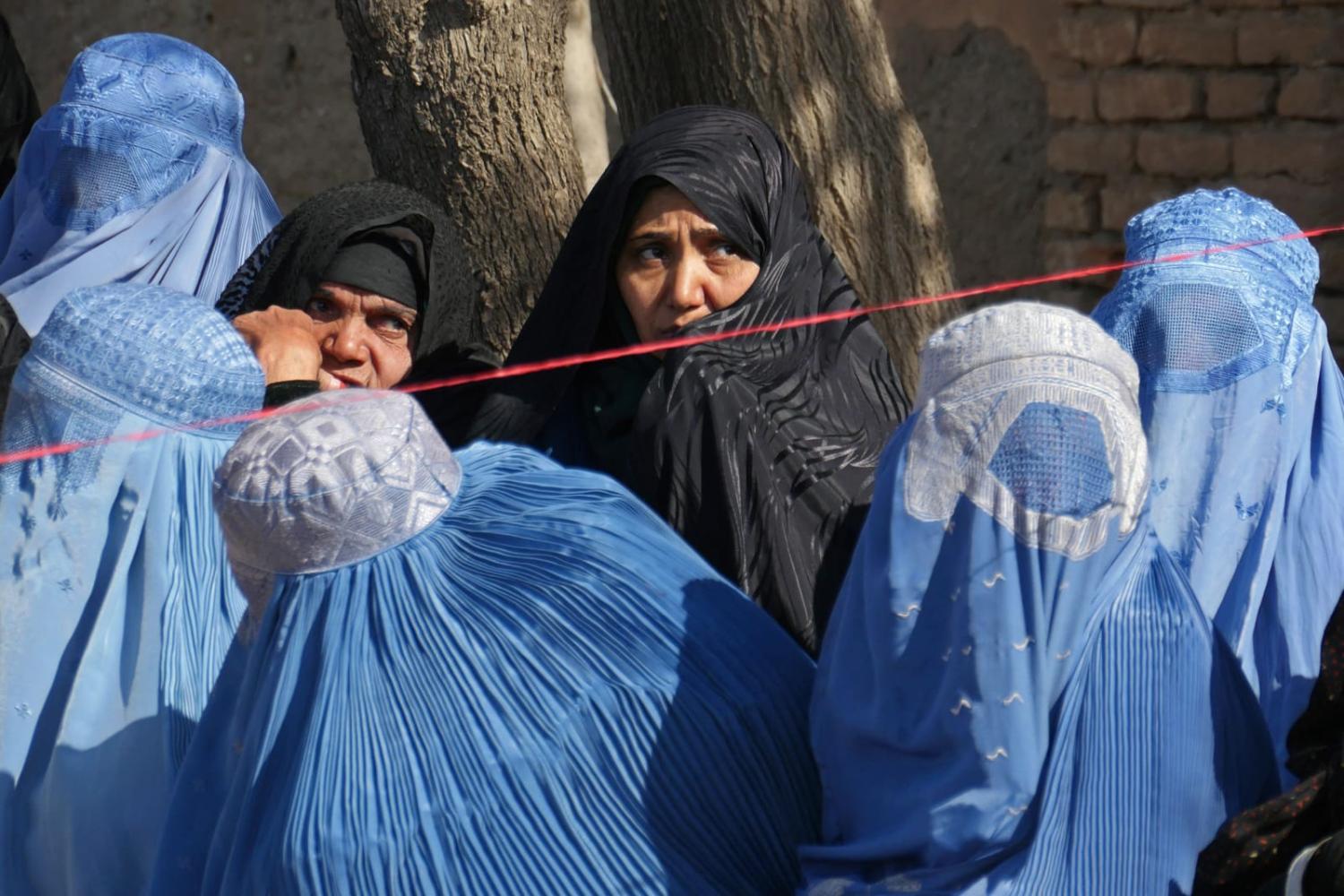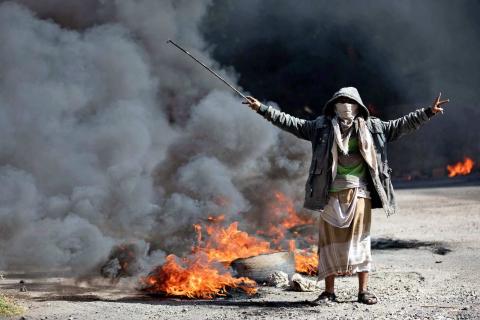Despite international condemnations and failed diplomatic engagement, the “Taliban 2.0” have deliberately instituted gender apartheid to optimise their political control in Afghanistan. The Taliban’s multi-level power game subjugates women and girls in every space – at home, schools and workplaces, in public, political and international spheres.
This leaves humanitarians and governments facing a critical challenge: how to respond to humanitarian needs and priorities in the country without reinforcing the Taliban’s regime of gender apartheid.
Afghanistan is the world’s largest humanitarian crisis with more than half of the population in need of urgent humanitarian aid to survive, the majority of whom are women and children. An estimated 96 per cent of women-headed households are not eating enough due to the Taliban’s restrictions on women and girls.
Yet a recent “urgent call” for diplomats to return to Kabul featured on The Interpreter last week, as well as in comments on Monday by UN deputy secretary-general Amina Mohammed for “baby steps to put us back on the pathway to recognition” of the Taliban, would be dangerous for the women and girls having to endure a gender-apartheid regime.
After the chaotic withdrawal of international forces, recognition of the Taliban through recommenced diplomatic relations would send a strong message to women and girls that the international community has given up on them, twice. Recognition is the last bargaining leverage with the Taliban. Giving it away without getting anything in return would mean abandoning the chance to improve the current situation with serious ramifications for entire generations of women and girls.
Humanitarian organisations are the main international actors present in Afghanistan. Their approach to distributing aid and navigating humanitarian access in the face of Taliban restrictions is critical for the survival and resilience of the people of Afghanistan. Therefore, it is crucial to factcheck the extent to which four fundamental humanitarian principles of humanity, neutrality, impartiality, and independence, established by the UN General Assembly in 1991, are guiding aid delivery in Afghanistan and the consequences if these principles are not upheld.
First, it is clear that the principle of humanity is being jeopardised when half of the population is blocked from directly accessing humanitarian aid because of the ban on women’s employment within aid organisations. Because of the restrictive environment, women are unable to access aid unless distributed by other women. We know from previous research that male heads often do not distribute aid equitably in households and communities. Thus, organisations need gender-responsive methods to ensure they reach women and children.
Second, the extent to which humanitarian actors can uphold impartiality is limited by Taliban rule. In many cases, humanitarians do not operate in all provinces in need because their operations are subject to Taliban permission. Yet delivering aid to diverse ethno-religious and linguistic communities, such as the deprived Hazaras provinces, is crucial to address the humanitarian crisis. The Taliban have a track record of restricting aid access to the Hazara region based on their political agenda.
Third, humanitarian actors’ neutrality in Afghanistan is undermined by the constraints on their practice of humanity and impartiality principles. In a gender-apartheid system, a gender-neutral approach would not be neutral but rather reinforce marginalisation of women and their access to aid.
Fourth, the principle of independence is critical to the integrity of humanitarian operations. For example, the Taliban’s directive on where aid should go is a clear violation of the principle of independence. While it may enable aid delivery, it may also mean giving up on vulnerable and marginalised populations.
Humanitarian principles require the inclusion of women and diverse Afghan populations. The delivery of assistance must take into account gender-specific risks and intersectional vulnerabilities to ensure access and assistance for all. In Afghanistan, humanitarian actors are already intervening in gendered relations simply by being present and conducting their activities. This makes it even more important for them to be gender-sensitive to minimise further harm to women and girls.
Instead of returning diplomats and providing further recognition to the Taliban, we recommend that humanitarian actors in Taliban-ruled Afghanistan uphold humanitarian principles and adopt a “below the radar” approach that is gender-sensitive and gender-responsive. Partnerships with locals and grassroots organisations can bypass the Taliban’s central authorities and navigate through complexities to deliver humanitarian aid. Quiet negotiations with local actors at sub-national levels have proven effective as some humanitarian organisations have advanced such an approach. They have been discreetly negotiating with local authorities to ensure humanitarian aid equally benefits women, enabling women staff to continue to work from home while they push for the removal of the ban or identify workarounds.
Humanitarian actors also need to remain cohesive in their approach vis-à-vis Taliban central authority. As a unified community with a deep footprint in Afghanistan, they can maintain the pressure on the Taliban inside the country – in conjunction with international censure outside. This is a much more effective approach than expecting newly arrived diplomats from world capitals, who would likely not leave their embassy “green zone”, to negotiate access and inclusion with the Taliban in Kabul or Kandahar. To alleviate the suffering of the people of Afghanistan and ensure the possibility of a more equitable country, we call for unity and stealth in negotiating inclusive humanitarian access as a non-compromising goal.

